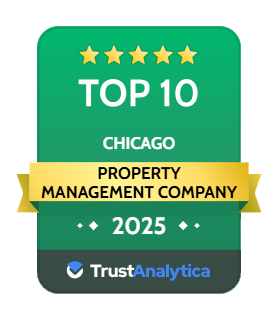Under Illinois’ Executive “Stay at Home” Order, real estate services are included under “essential businesses”. This means people engaged in real estate are permitted to leave their homes to provide these services. This includes real estate brokers and their clients.
If you do continue to do business, and meet with clients, it’s important to consider the CDC guidelines, washing hands, keeping surfaces clean, covering your mouth when coughing or sneezing, etc. Chicago Association of Realtors also strongly encourages people to find alternative means for managing business, such as through virtual tours and video conferencing and electronic tools.
As of April 1, 2020, the Illinois Department of Commerce and Economic Opportunity added specific language pertaining to real estate, stating that open houses and the showing of non-owner occupied units are not permitted.
Open houses put brokers, their clients, and the public at risk. They are encouraging brokers and agents to find alternative avenues to host open houses, such as holding virtual or video open houses.
Again, Chicago Association of Realtors urges everyone engaged in real estate to take the recommended precautions to limit the risk of unnecessary exposure to, and transmission of, COVID-19 to brokers, their clients, and the general public.
CURRENT LEASES UNDER “STAY AT HOME ORDERS"
If you have current tenants and leases in place, being proactive is always better than being reactive. Reach out to your tenants, let them know if they are struggling or having any issues to contact you.
If you have tenants whose leases were scheduled to expire during this time, reach out, offer the possibility of extending the lease. Even if you extend the lease agreement for 1-3 months, it can be enough to help people through the crisis when they may be hard pressed to find a new place to live.
COVID 19 is forcing all industries to rethink their operations and contract clauses. You may consider creating an addendum to existing leases in the event of tenant defaults. Specifically, clauses that include diseases, epidemics, and/or quarantines. Also remember that across the country, including Chicago, there is a temporary suspension of eviction and foreclosure proceedings for 120 days.
Some landlords are more flexible than others, but communicating with your tenants and at least offering to workout a payment plan can go a long way. This is also an opportunity to develop and build a great reputation as a landlord. People will always remember how you treated them in times of crisis.






.png)


